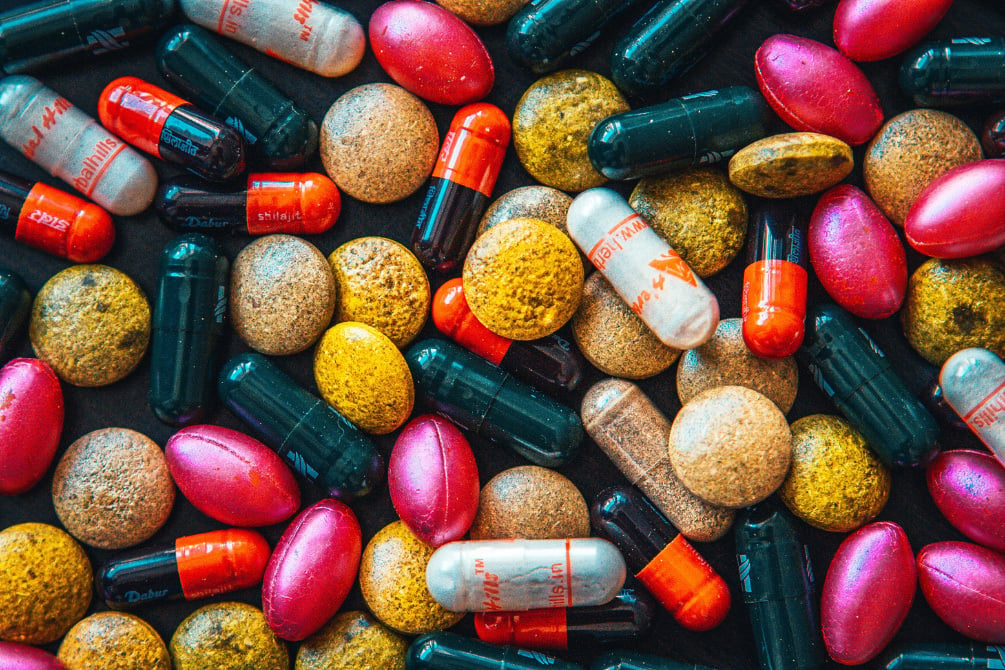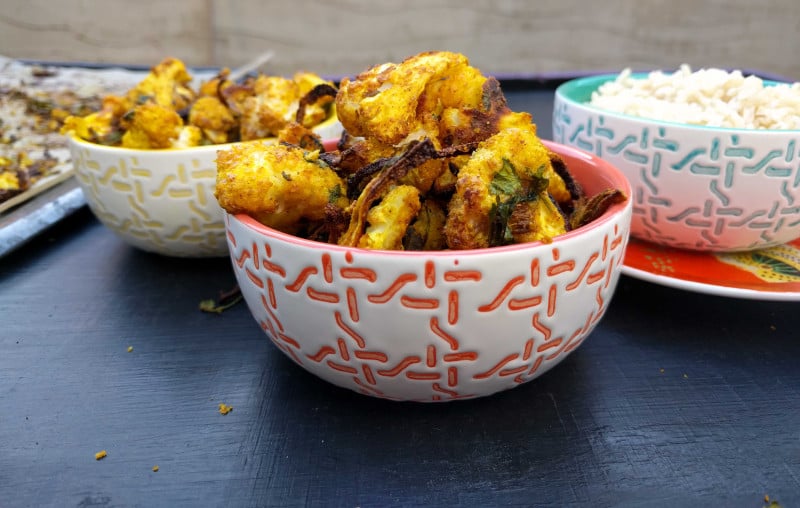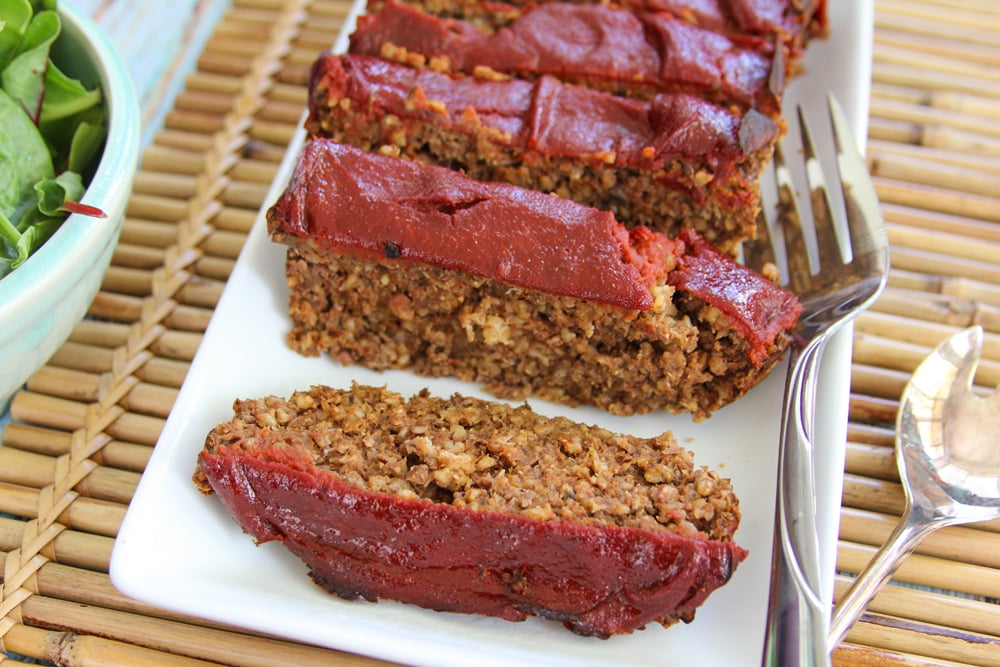Vitamins and Vibrators

By Molly Patrick
Dec 9, 2014,
By Molly Patrick
Dec 9, 2014,
I never ate meat and had little dairy as a kid. Growing up, I knew that eating lots of colorful veggies, whole grains, beans, and legumes was healthy (not popular, but healthy), and I was 15 when I connected the dots between what someone eats and how healthy they are (or not).
My first job was at The Silver City Food Co-op, the same small health food store where my mom worked. One day, I was stocking the rice milk as my mom talked with a customer. I overheard them ask my mom what vitamins she took because they wanted her glow.
My mom has always been super beautiful with amazing skin, so people would often inquire about her beautifying secrets. She answered:
I don’t take many vitamins. I just eat healthy food.
That one short answer had an impact on my life. The connection between the food we eat and how we feel and look hit me like a sack of bulgur. A light bulb went off and I’ve been intrigued ever since.
“…I just eat healthy food.” The food my mom ate was the same stuff she always fed me: plant based food.
Sweet potatoes, broccoli, carrots, tempeh, brown rice, mushrooms, veggie soups, tofu, big salads, sprouts, avocados, almonds, lentils, beans…
Relying on getting all our nutrients in the form of pills instead of getting those nutrients directly from food is kind of like buying cute new yoga clothes and calling yourself a yogini without stepping foot on a yoga mat.
In order to get the full benefits of yoga, we need to haul our ass to class and get up close and personal with our down dogs. Is the yoga analogy not working for you? Try this one on for size.
Relying on getting all our nutrients in the form of a pill and declaring yourself healthy is like going to a sex shop, picking out some vibrators, and changing your Facebook status from “Single” to “In a Relationship.”
Focusing on one single nutrient that would ordinarily come from food and synthesizing it into a pill doesn’t have the same effect as if you were to eat the food containing that nutrient.
Nutrition is complex. Each plant food has thousands of nutrients and it’s the way in which they all work together that gives us long term protection from chronic illness and disease.
We can’t expect that taking a few different vitamins each day will do the same job that thousands of nutrients in food working together do in the body. There are a few nutrients that are important to supplement because they aren’t found in food, or are harder to find in food, but relying on vitamins for our overall health isn’t a great solution. In fact, taking certain supplements might actually do more harm than good. Check this out while I rewind the track.
We’re going back to the 80s when jellies were in, the New Kids on the Block were hot, we rewound our movies, Molly Ringwald validated my name, and supplements were all the rage.
There was one nutrient in particular that got a lot of attention in the early 80s. Beta carotene is a powerful antioxidant. It’s a precursor to vitamin A, and it’s only found in plants.
Diets high in beta carotene have been found to reduce the risk of chronic disease, including lung cancer. Back in the day, people thought that it was specifically the beta carotene in plant-based diets that made them so effective against lung cancer.
Naturally, vitamin manufacturers started huge marketing efforts promoting beta carotene supplements. They thought that if beta carotene-rich diets reduced the risk of lung cancer, then surely synthesized beta carotene in pill form would do the same, right?
Not so much, as it turns out.
There was a study organized in Finland in the mid 80s to test the hypotheses. It was an observational study where 29,000 male smokers were followed for 8 years, starting in 1985. Some of them were given beta carotene supplements and some were not.
The shocking results were published in the New England Journal of Medicine in 1994.
The group of men who consumed beta carotene supplements actually had an 18% increase of lung cancer compared to the group not taking the supplement. The increased risk of lung cancer meant that similar studies taking place in the US were halted immediately and the marketing of synthetic beta carotene supplements came to an end.
This is just one example of how, when taken out of context, single synthesized nutrients in pill form do not act the same way in the body as nutrient dense food. Plant foods high in beta carotene include sweet potatoes, carrots, leafy greens, butternut squash, red and yellow peppers, and broccoli. Make sure to add some of these foods to your next grocery shopping list!
There are two vitamins that are important to supplement on a plant-based diet. This is the story of vitamin D and vitamin B12.
Let’s start with vitamin D.
Vitamin D isn’t really a vitamin at all. A vitamin is a nutrient we must consume because our bodies don’t make it. As it turns out, our body can make vitamin D. All we need is some sunshine each day, and our body produce all the D we need.
So if you can get out in the sunshine and expose your arms and legs for about 10-15 minutes each day, you’ll be set in the D department. If you live in England or somewhere the sunshine doesn’t happen on the daily, then taking a vitamin D supplement will help with your D levels.
Now let’s see what’s happening with B12.
B12 isn’t made by plants or animals. It’s made by microorganisms found inside the large intestines of animals or microorganism-rich soil. Plants containing B12 would have to be grown in high-quality, organic microorganism-rich soil.
Today’s soil typically isn’t great, so if you follow a plant-based diet, taking a B12 supplement is recommended. You need about 2,000 micrograms (MCG) per week. How much you get per day isn’t as important because the body stores B12 and releases it as needed.
I keep things simple and take this daily supplement, which includes Vitamins D and B12 (this is an affiliate link). There are other options out there, but this is an awesome company with a ton of integrity. The supplement industry is unregulated, so it’s up to the individual companies to keep up their standards. Sadly, many do not.
Let’s close this sucker down and bring it home.
At the end of the day, there’s no need to spend extra money stocking your cabinets with dozens of supplements.
If you spend a little time in the sunshine each day, eat a wide variety of whole plant foods, and take some B12, you’ll get all the fat, protein, carbohydrates, vitamins, minerals, and phytochemicals you need to protect your beautiful body from chronic illness and disease.
Combine this with a regular yoga practice and plenty of orgasms and you’ll be glowing in no time.
And hey, we all have to buy groceries and eat anyway. We may as well buy food that will protect our overall long term health and call it a day.
Xo
Molly
5 Comments
Leave a Comment
You may also enjoy...
Love the food that loves you back
Get instant access to thousands of plant-based recipes and meal plans, no credit card or perfection required.













Love love love your recipes and write-ups.
Thank you! Big virtual high fives and booty bumps 🙂
Great post! I agree with what you said about suplements. I once believed they were magical… oh well. And then I began to care for food and nutrition and gave all those up. I feel better now and the only “suplements” I have to take now are ayurvedic herbs. I’ve been taking Brahmi to help me with my focus levels and it really works. But I guess is much different from chemical suplements and pills. In the end, as you said, is much better to balance what we are eating!
P.S. Loving the photo of your Mom, she is indeed gorgeous 🙂
thanks for the link to the supplements recommended by Molly. She has 2 different B-12 products. Do I just pick one? Hope this is not a dumb quesiton.
This was yummy! 🙂 I decided to saute the cabbage, red onion, and pepper a little (with water) beforehand to soften them. I also added 1 tsp. of maple syrup to the dressing. We enjoyed it!